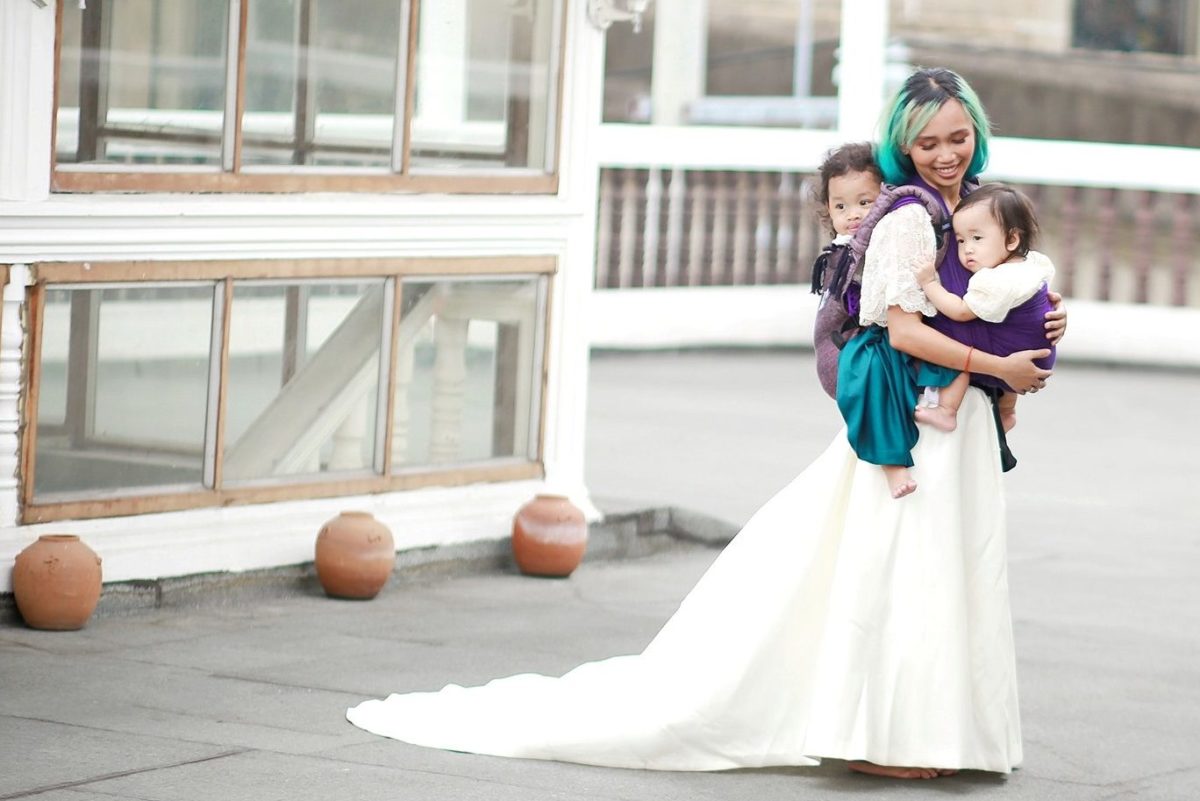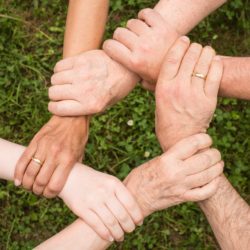As our firstborn headed to her first days of preschool, I was reminded of the time I was a preschool teacher. In our curriculum, we had a lesson introducing community helpers to the children, which, to me, was not only a way to learn about the people around us, but also served as a sort of career orientation.
“What would you like to be when you grow up? “
A doctor. A teacher. A truck driver. A vlogger. A millionaire. I even read an unlisted quote on teaching your child to want to be happy. I had to go back to the time, far back as I can remember, when I answered the same question. My answers—doctor, saint, politician, and president of the country—are very far from what I am doing now. But even if I did not become any of the above wishes, I still had what I believe were central to these callings: courage.
Braving the Unknown: Motherhood
I can say that motherhood broke my shell and exposed me to the world. I did not just give birth; the mother in me was also born. To look at blood and water gushing out of me, pre- and post-birth. To touch the stitched skin that you would rather not look at. To stand up and muster the strength to poop within 24 hours after giving birth, because the thought of pushing reminds me of that laborious task of bringing a human being into this world. These things were my little steps of courage the first time I gave birth.
Babywearing: Wrapped in Courage and Love
As a first time mother, I was naive, experimental, and courageous in different degrees. For me, the first courageous act I did came in the form of “wearing” our baby. Babywearing our firstborn was a bold move, defying preconceived notions held by elders you respect with research combined with my own maternal instinct. The fear of being a burden to people prompted me to find ways to be a mother while being my other selves—student, teacher, wife, daughter, sister, friend. Bringing her almost everywhere I went was a leap of faith: I was not sure how people would perceive me, especially at work. Seeing our child snug in the warmth and close to my breast was enough to say it was worth it.
Aside from my children’s welfare, I realized my welfare was also improved by my decision to babywear. I also needed the children as they needed me. Most of my close friends were still single so I had a hard time sharing motherhood concerns. Babywearing helped me deal with post-partum blues as keeping baby close to the mother helps release oxytocin, which is a happy hormone. Studies say hugs can make you happy. Babywearing keeps both my children and me wrapped in happy hugs.
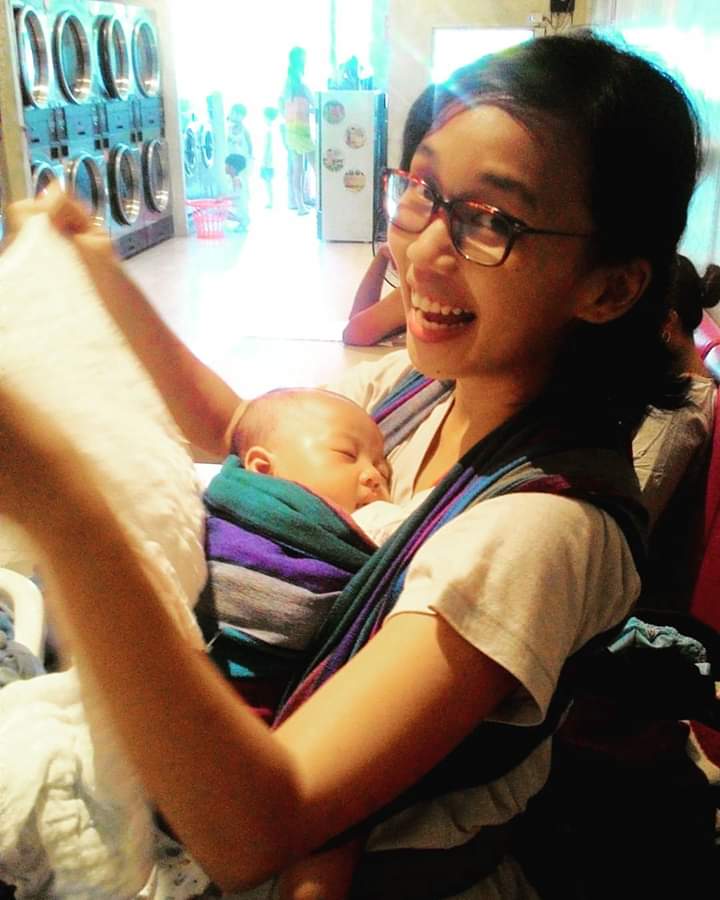
Breastfeeding: Liquid Gold for Two
Breastfeeding was also a bold move, especially when we made a decision to breastfeed while pregnant. I had not even thought about weaning our firstborn when I found out I was pregnant with our second child. My ob-gyne recommended I start formula feeding our child. I listened to my body and read about breastfeeding while pregnant. As there was still milk in me even throughout the first trimester when the milk should have waned, I tried mix feeding—breastfeeding combined with formula feeding—our child. No bleeding and contractions accompanied my pregnancy. By God’s grace, everything went smoothly. My husband and I kept it a secret to avoid judgment, especially from elders in our family. But as I read more and met other women who did the same, I have decided to tell, little by little, the story, with caution and honesty about how we continue to do it. Eventually, we decided to tandem feed—breastfeeding both our daughters at the same time, to this day!
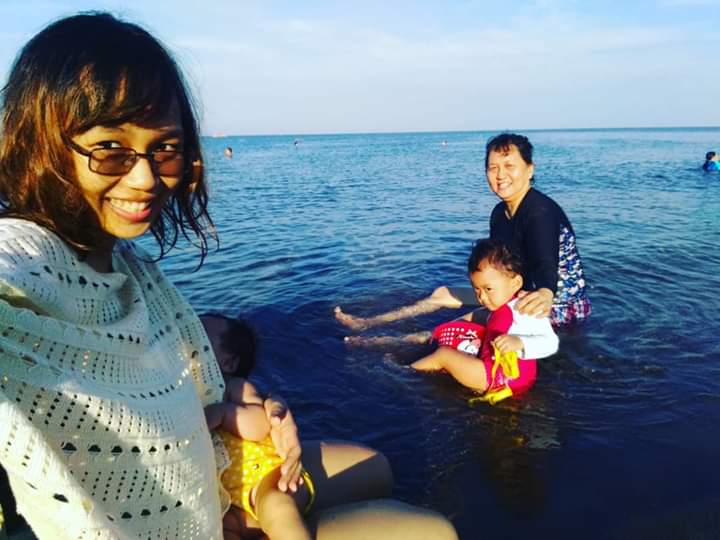
Commitment and Consistency
Breastfeeding and babywearing are not easy. For the working mom, it needs boldness to ask your workplace to respect your breastfeeding rights. It takes perseverance to wake up and sleep late pumping milk and washing bottles. It takes intentionality to brave the traffic, hoping there’s no delay so your liquid gold gets home as soon as you can. For the stay-at-home mom, deciding on babywearing means putting on additional weight while carrying loads of clothes to and from the washing machine. It means facing the webcam and hoping your baby stays asleep throughout your lesson. It means gathering yourself together when you want to break down and all you have is your child who cannot respond with words you can easily understand. Babywearing and breastfeeding, both of which are attachment parenting practices, require not only your desire for commitment, but physical strength and health as well.
Sharing Courage to Others: Our Family Story
Our daily practices of babywearing and breastfeeding have prepared our family to share our commitment on a larger scale. I was tapped by the Technical Cooperation Council of the Philippines (under the Department of Foreign Affairs) to conduct a music workshop for children of Svay Leu District in Siem Reap. As our baby was just hitting her sixth month, she had not eaten anything yet aside from milk direct from my breast. She would not take in my breast milk or formula milk from a bottle, and me being gone for a week would mean sleepless nights for her, her caregivers, and me. With a leap of faith, I asked TCCP, who in turn asked Food for the Hungry-Cambodia (FH-KH), if it was permissible to bring a baby to the site, considering food, water, and hygienic concerns. As an answered prayer, our whole family was blessed to take the task of holding the values and music sessions, together with the art sessions conducted by DLS-CSB Professor Noel Farrol and his students. Our interpreter, Minear, told me that it was quite puzzling as well as inspiring to see that husband and wife treat each other as equals in childrearing and working—something that the new generation of Cambodians hope for. In the end, not only was I able to bring my daughter to briefly work with the children of Svay Leu, but I was also able to make lifelong connections with other Filipino artists and staff of FH-KH and some residents of Siem Reap as well.

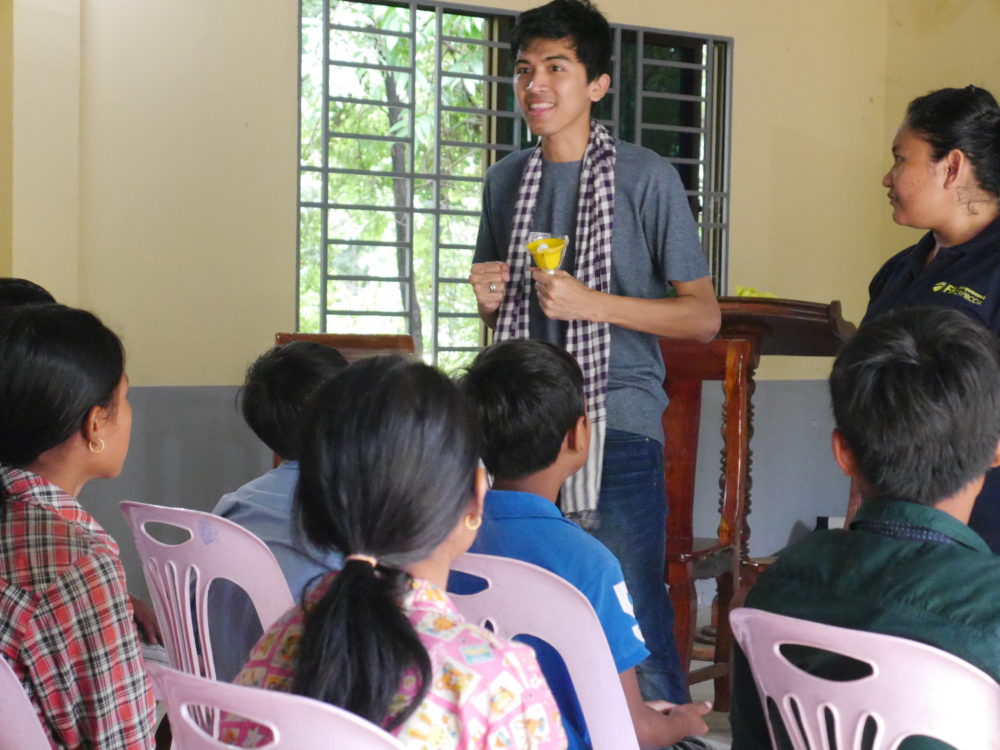
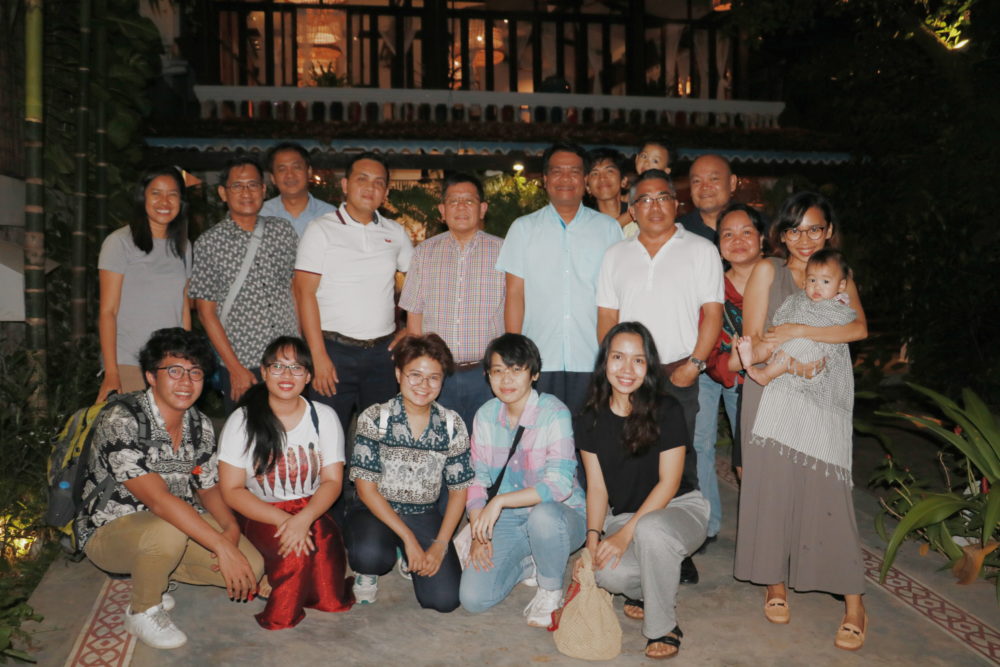
Being a Light for Myself and Others
Your courage should not only empower you, but others as well. At first, sharing daily snippets of motherhood seemed rather vain. I was not accustomed to sharing my feelings and practices to an audience, some of whom I had not met. But with every well-thought of post I made came words of encouragement, for me and for those who have seen what I merely thought as an exposure of my vulnerability. It was like a beam of light for them. And as a lamp should not be put under a bushel, I felt that discussing motherhood, among one’s other roles, is my purpose at this point in time.
And so I bring myself to the question: Do I want to become a mother? On some days, I would lovingly say yes. On other days, I would tell you indirectly that I did not sign up for all this. Deducing from my experiences, as well as those of my friends who are also mothers, commitment to motherhood and practices such as breastfeeding and babywearing need a lot of courage because the comfort it brings is mostly for your child. Motherhood is not the romantic hour at your dream destination. It is all the steps you take—the mistakes, loss, fears, and lessons included—to get to where you want to be.
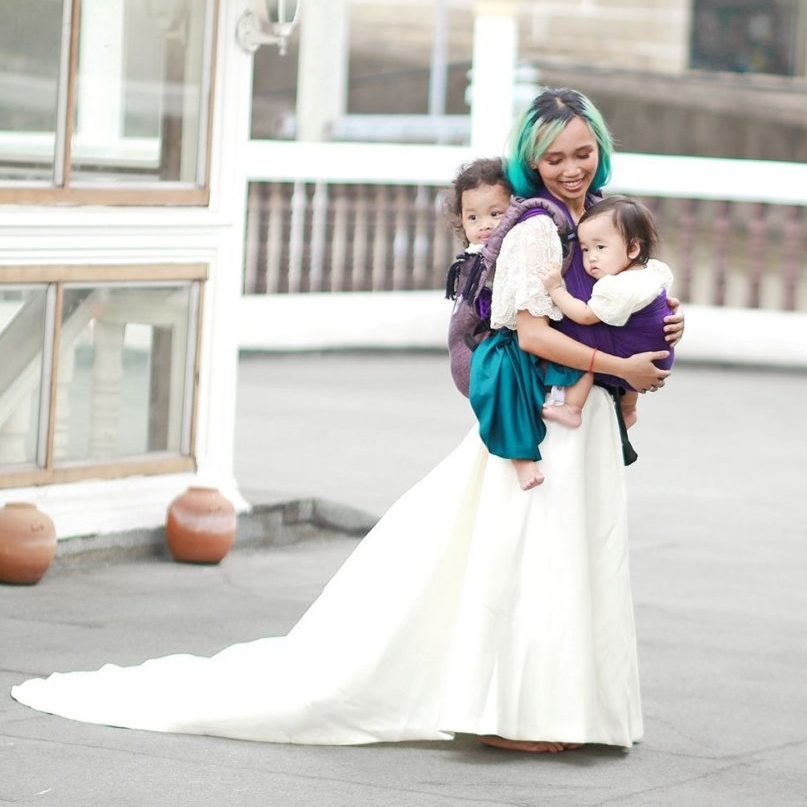
Anna Patricia Rodriguez-Carranza, Mama Pat for short, spends her 24 hours divided among her children and husband, research and teaching, volunteer work on Music Education and motherhood support system, babywearing and attachment parenting advocacy through blogging, and self-care. She does not know how she is able to do all these, but she is sure of guidance from Above.

